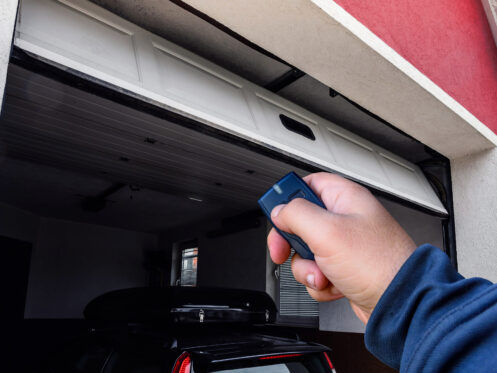Your garage door is probably the largest moving part in your entire home. It does a lot more than simply open and close; it keeps your car secure, adds curb appeal, and protects your family from weather and intruders. In San Diego’s mild coastal climate, routine garage door inspections ensure everything works smoothly. How often should you have your garage door inspected? Let’s break it down in this guide.
Why Garage Door Inspections Matter in San Diego
Living in San Diego comes with abundant sunshine, refreshing breezes, and moderate temperatures. The things that make this area enjoyable can take a toll on your garage door. Humidity and salt air cause metal components to corrode and wooden doors to warp and crack. Without routine care, moving parts can fail suddenly, putting your family’s safety at risk.
Regular garage door inspections help identify small problems before they turn into costly repairs. They extend the life of your garage door while ensuring safe operation. Regular inspections also support your home’s security and energy efficiency.
How Often Should You Schedule a Garage Door Inspection?
Most garage door experts, like us at ADS Automatic Door Specialists, recommend having your system professionally inspected at least once a year. When you live in San Diego, an annual inspection is usually enough to stay ahead of normal wear and tear caused by coastal conditions and daily use.
If you use your garage door more than the average household, for example, if your garage is your main entry point, consider scheduling an inspection twice a year. More frequent inspections help prevent unexpected failures at the worst possible time.
What Does a Garage Door Inspection Include?
A thorough inspection covers more than just your home’s garage door. When you call a trusted local garage door company like ADS Automatic Door Specialists, you can expect our technicians to examine all key components. We will inspect the springs and cables. These parts bear the brunt of your door’s weight, so we will check for signs of wear, rust, or fraying that could lead to breakage. Our team will also inspect the rollers and tracks. Your garage door operates smoothly due to these moving parts. We will look for debris, dents, or misalignment that can cause sticking or noisy operation.
We will also inspect for loose hinges or damaged hardware that can cause your door to wobble or become off-balance. We will tighten, adjust, or replace parts as necessary. Especially important in coastal climates, good weather seals prevent moisture, wind, and pests from entering your home. Our technician will look for cracks or gaps. A big part of your system’s reliability comes down to the garage door opener. Our team will test safety features, remote controls, and the auto-reverse mechanism to make sure everything is functioning properly. Proper balance prevents unnecessary strain on your opener. If your door feels heavy or drifts when partially open, it may need rebalancing.
Warning Signs Not to Ignore
While inspections help catch most problems, the following warning signs indicate that your door needs attention:
- Loud grinding or squeaking noises
- Door moves more slowly
- Door doesn’t close completely or reverse
- Sagging sections of the door
- Visible rust on cables
- Remote switch stops working
- Gaps in weather seals
- Visible damage to panels
Practical Tips Between Inspections
Although a professional garage door inspection is the best way to protect your system, a little TLC in between appointments goes a long way, especially in San Diego’s coastal environment, where salty air and humidity accelerate wear and tear.
Keep It Clean Inside and Out
Salt air, sand, and debris can build up on your door panels and hardware. Wipe down the exterior and the weatherstripping every month or so to remove dirt and grime that can lead to rust or corrosion.
Listen and Observe During Operation
Your garage door should move smoothly and relatively quietly. Get into the habit of paying attention each time it opens and closes. If you hear new squeaks, grinding, or banging, don’t ignore it.
Test the Auto-Reverse Feature
Safety sensors and the auto-reverse feature stop the door from closing when something is in its path. About once a month, place a small object on the floor under the door and close it. The door should reverse as soon as it touches the object.
Check the Balance
A well-balanced door reduces strain on your opener. With the door closed, pull the emergency release cord to disconnect the opener. Lift the door about halfway and release it. It should stay in place or move slightly. If it slams shut or shoots upward, the balance may be off.
Lubricate Moving Parts
Apply a garage door-approved lubricant to the rollers, hinges, and tracks every month. This helps prevent squeaks and minimizes wear.
Keep the Tracks Clear
Ensure the tracks are free from debris and cobwebs. Wipe them down to remove buildup, and watch for misalignments that could keep it from operating correctly.
Check the Weatherstripping
Good weather seals keep moisture, pests, and hot or cold air out of your garage. Inspect the door for cracks, gaps, or worn-out sections. Replace damaged weatherstripping as soon as possible.
Benefits of Garage Door Maintenance
Your garage door utilizes springs, cables, tracks, and sensors that work together under tension, not just a part of your home that you can overlook. Always invest in maintenance sessions with our team to extend your garage door’s lifespan.
Keep Your Family and Property Safe
Broken springs or cables can snap without warning, posing a danger to your family. Professional maintenance ensures that all component replacements occur before hazards arise.
Protect Your Home’s Security
A poorly maintained garage door is an easy entry point for intruders. Loose panels, broken locks, or a malfunctioning opener weaken your home’s defense. Routine inspections keep your garage door secure.
Lower Your Energy Bills
A properly sealed and balanced garage door keeps your garage better insulated, which is important in San Diego’s coastal climate. When seals are tight and panels fit well, less outside air sneaks in, which helps keep your connected living spaces more comfortable.
Avoid Inconvenient Breakdowns
Imagine getting ready to leave for work or a weekend getaway, only to find that your garage door won’t budge. Regular maintenance greatly reduces the odds of sudden breakdowns, so your door works when you need it most.
Stay Ahead of Repairs with Regular Inspections
In a place like San Diego, where the weather is kind most of the year but the coastal air can wear down metal and wood, regular garage door inspections are one of the best things you can do for your home. Annual or semiannual inspections help you catch problems early, extend the life of your door and opener, and protect your investment for years to come.
If you can’t remember the last time you had your garage door looked at, now’s the perfect time to schedule a garage door inspection. Contact us at ADS Automatic Door Specialists for a consultation.


